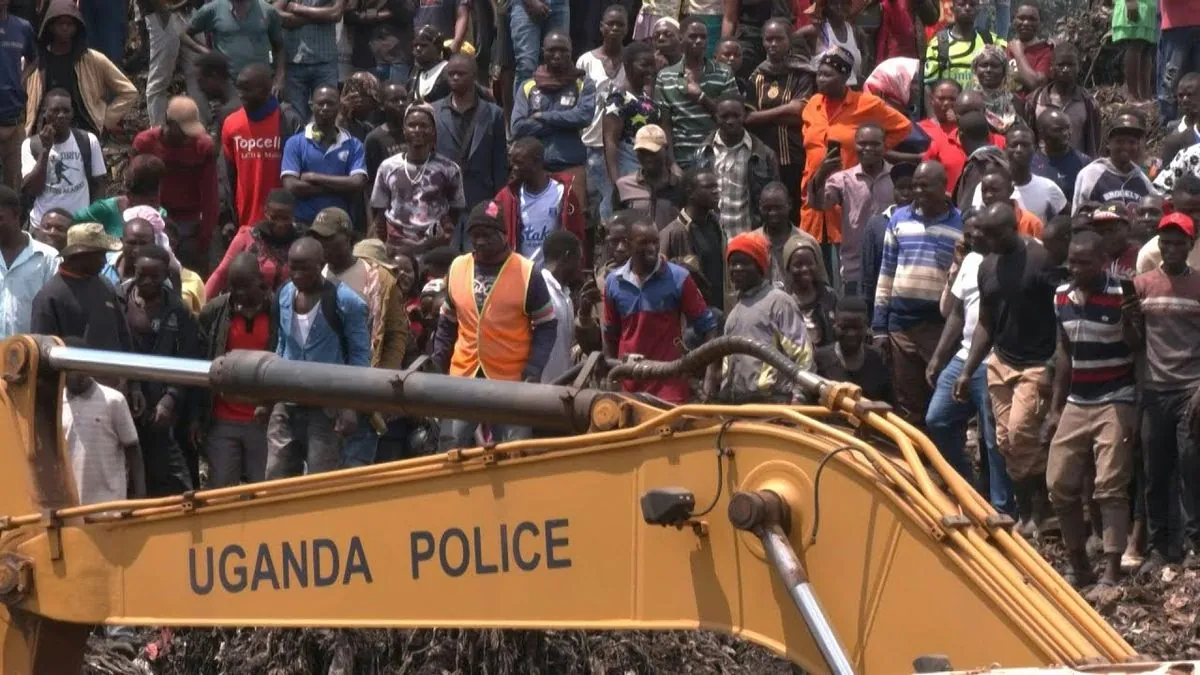In a tragic turn of events, a landslide at Kampala's primary waste disposal site has resulted in 13 fatalities, according to the latest update from Patrick Onyango, the police spokesperson. The incident occurred on the night of August 9, 2024, following a period of heavy rainfall in Uganda's capital.
The disaster struck the Kiteezi landfill, Kampala's sole garbage dump, which has been in use for decades. The accumulated waste had formed a substantial mound over time, posing a significant risk to nearby residents. The recent torrential rains caused a section of this waste heap to collapse, burying homes on the landfill's periphery as occupants slept.
Rescue operations have been ongoing since the landslide, with 14 individuals successfully extracted from the debris so far. However, authorities are unable to determine the exact number of people who may still be trapped beneath the rubble.
The Uganda Red Cross Society has established temporary shelters near the disaster site to accommodate those displaced by the landslide. This rapid response highlights the organization's crucial role in disaster management, a responsibility it has held since its founding in 1962.
This catastrophe underscores the pressing issues surrounding waste management in Kampala, a city with approximately 1.5 million inhabitants. The Kampala Capital City Authority has faced challenges in securing a new landfill site, with efforts dragging on for years. Residents living near Kiteezi have long voiced concerns about hazardous waste polluting the environment and endangering their lives.
The incident in Kampala is not isolated, as similar tragedies have occurred in other African nations. In 2017, a landslide at a garbage dump in Addis Ababa, Ethiopia, resulted in at least 115 fatalities. The following year, Maputo, Mozambique, experienced a comparable disaster that claimed 17 lives.
These recurring incidents highlight the urgent need for improved waste management practices across rapidly growing African cities. As urban populations expand, the challenge of managing municipal solid waste becomes increasingly critical. Proper waste management is not only essential for public safety but also plays a crucial role in achieving the United Nations' Sustainable Development Goals.
Climate change further exacerbates the risks associated with inadequate waste management. The increasing frequency and intensity of extreme weather events in East Africa, such as the heavy rains that triggered the Kampala landslide, underscore the importance of developing resilient and sustainable waste disposal systems.
As rescue efforts continue in Kampala, this tragedy serves as a stark reminder of the need for urgent action to address waste management challenges in urban areas. It calls for a comprehensive approach that considers environmental impact, public health, and the safety of communities living near waste disposal sites.
"We have set up temporary shelters for those displaced by the landslide. Our teams are working tirelessly to provide immediate relief and support to the affected families."
The Kampala landslide disaster emphasizes the critical importance of implementing sustainable waste management practices and highlights the potential consequences of neglecting this essential aspect of urban planning and development.
